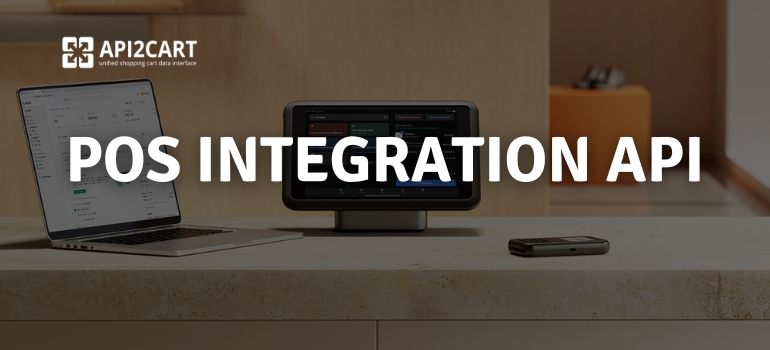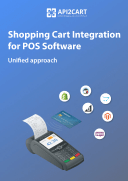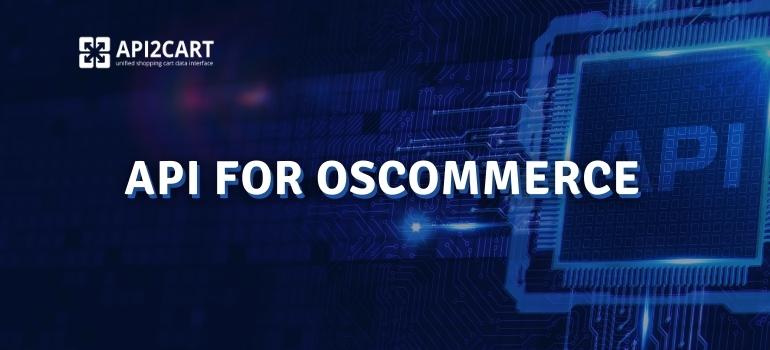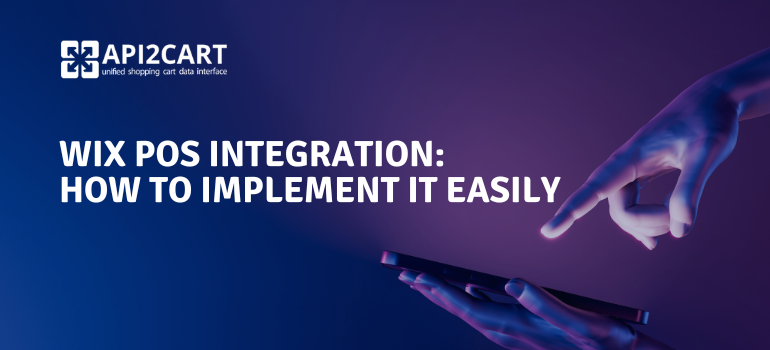
For SaaS providers, managing POS (Point of Sale) systems across different eCommerce platforms can be challenging. Traditional point of sale systems often lack seamless integration with new shopping platforms, making it difficult to provide real-time data synchronization and automation. This is where a robust POS integration API can make a significant difference, offering a streamlined solution that simplifies POS integration with eCommerce platforms.
By integrating POS systems with eCommerce platforms using an API, businesses can enhance efficiency, improve customer experience, and ensure real-time synchronization of sales, inventory, and order data across multiple channels. For SaaS providers, this integration allows you to offer clients the flexibility and scalability they need to manage POS systems, orders, inventory, and sales in one unified system. Integrating your POS system with eCommerce platforms via an API offers seamless functionality and opens up opportunities to scale your service offerings.
This article explores the advantages and functionality of POS integration APIs, showing how they can optimize your SaaS offering and meet the evolving needs of modern eCommerce businesses. Let's dive into how API-driven POS integration is transforming operations in today's competitive digital landscape.
What is POS Integration API?
A POS integration API is an application programming interface that connects Point of Sale (POS) systems with other software or platforms, such as eCommerce stores, inventory management systems, CRMs, and accounting tools.
This integration enables businesses to automate the exchange of crucial information, including sales data, customer details, product updates, and stock levels. By using POS integration APIs, businesses can improve efficiency, maintain data consistency, and ensure real-time synchronization of transactions and inventory across systems.
Think of the POS integration API as a digital bridge connecting your POS system with external tools, enabling seamless data synchronization, automation, and real-time updates. Beyond transaction processing, it transforms your POS system into a centralized hub for comprehensive business management.
For instance, if a business operates both an online shop and a physical POS system, the POS API integration can synchronize stock levels across both platforms. It also enables eCommerce tools, CRMs, and accounting applications to communicate directly with the POS system. This not only saves time but also minimizes errors, leading to smoother business operations.
Benefits of Connecting POS with Shopping Platforms
POS software heavily relies on integration with shopping carts to carry out key functions. The ability to access and process order, customer, and product information from online stores is crucial. By using an API for POS integration with multiple shopping platforms, businesses can unlock several transformative benefits. Most importantly, this integration eliminates the need for manual data entry, reducing errors and saving valuable time.
With this integration, businesses can expand their sales channels by connecting with eCommerce platforms or online marketplaces. It enables real-time inventory updates, order management, and synchronized sales data across both online and offline channels. By providing a unified view of sales and inventory, this integration streamlines operations and improves the overall customer experience.
In summary, utilizing a POS API integration can revolutionize your point of sale system. It boosts efficiency, improves data accuracy, expands sales channels, and enhances the overall customer experience. This integration allows businesses to take advantage of automation and stay competitive in the rapidly evolving eCommerce market.
1. Seamless Integration
eCommerce integration makes it possible for businesses to connect their POS systems with various shopping platforms like Magento, Shopify, and others. POS integration API eliminates the need for manual data entry, ensuring accurate, real-time information across all platforms.
2. Enhanced Data Accuracy
When integrating the POS system with other software, businesses can ensure that sales, inventory, and customer data are automatically synced and up-to-date. This eliminates human error and guarantees accurate reporting and analytics.
3. Improved Efficiency
By using POS integration APIs, businesses can automate processes like inventory management, order fulfillment, and reporting. This automation not only saves time but also allows employees to focus on more critical tasks, such as providing exceptional customer service.
4. Secure and Reliable
High-quality POS API integration ensures the security and reliability of data transmission between the POS system and other applications. It utilizes encryption protocols and authentication mechanisms to protect sensitive information and prevent unauthorized access.
The eCommerce integration enables POS systems to streamline their operations, improve efficiency, and enhance customer experience. With seamless integration capabilities and powerful features, this POS integration API is an essential tool for modern businesses.
Main Challenges of In-House POS Integration
Integrating a Point of Sale (POS) system with shopping platforms using an in-house API can be a complex and challenging task. Are you considering implementing it but unsure of the potential obstacles you may encounter?
Let's take a closer look at some common challenges businesses face when integrating POS software with shopping platforms using APIs. Whether you're an eCommerce software provider, a developer, or an industry professional, understanding these challenges will help you navigate obstacles and achieve a successful API integration.

Wait!
Want to see how to easily develop POS integration with eCommerce platforms?
Download our free PDF and explore the solution on how to connect your POS software with multiple shopping platforms at once.
How API2Cart Can Help You with POS Integration
Despite these challenges, integrating POS software with shopping platforms using a POS integration API can provide businesses with numerous benefits, such as streamlined operations, improved customer experience, and increased efficiency. By being proactive in addressing these challenges, businesses can unlock the full potential of the integration, gaining a competitive edge in the digital marketplace.
API2Cart offers a single, unified API that connects your software to over 60 eCommerce platforms and marketplaces at once. Rather than developing separate integrations for platforms like Shopify, WooCommerce, BigCommerce, Magento, OpenCart, PrestaShop, and others, your POS system can connect to all of them via API2Cart. This allows businesses to access and update store data—such as products, orders, customers, inventory, and prices—in real-time, ensuring accurate and up-to-date information across all integrated platforms.
POS Use Cases Implemented Using API2Cart
With API2Cart, you can implement several key use cases:
- Sync product catalogs and quantities;
- Import eCommerce orders;
- Synchronize customer profiles for enhanced loyalty programs;
- Send orders to eCommerce platforms for centralized reporting.
API2Cart simplifies POS software development by acting as a unified API layer for popular eCommerce platforms and marketplaces. This eliminates the need for separate integrations with each platform, saving time and reducing costs.
Example API Call to Sync Products with API2Cart
Here's an example of how you can retrieve product data using API2Cart's product.list method API method:
{
'return_code': 0,
'return_message': 'string',
'pagination': {
'previous': 'string',
'next': 'string',
'additional_fields': {},
'custom_fields': {}
},
'result': {
'products_count': 0,
'product': [
{
'id': 'string',
'type': 'string',
'u_model': 'string',
'u_sku': 'string',
'name': 'string',
'description': 'string',
'short_description': 'string',
'price': 0,
'advanced_price': [
{
'id': 'string',
'value': 0,
'avail': true,
'group_id': 'string',
'quantity_from': 0,
'start_time': {
'value': 'string',
'format': 'string',
'additional_fields': {},
'custom_fields': {}
},
'expire_time': {
'value': 'string',
'format': 'string',
'additional_fields': {},
'custom_fields': {}
},
'additional_fields': {},
'custom_fields': {}
}
],
'cost_price': 0,
'unit_price': 0,
'measure_unit': 'string',
'quantity': 0,
'inventory': [
{
'warehouse_id': 'string',
'quantity': 0,
'in_stock': true,
'priority': 0,
'additional_fields': {},
'custom_fields': {}
}
],
'group_items': [
{
'child_item_id': 'string',
'product_id': 'string',
'default_qty_in_pack': 'string',
'is_qty_in_pack_fixed': true,
'price': 0,
'additional_fields': {},
'custom_fields': {}
}
],
'u_brand_id': 'string',
'u_brand': 'string',
'categories_ids': [
'string'
],
'stores_ids': [
'string'
],
'url': 'string',
'seo_url': 'string',
'meta_title': 'string',
'meta_keywords': 'string',
'meta_description': 'string',
'avail_sale': true,
'avail_view': true,
'is_virtual': true,
'is_downloadable': true,
'weight': 0,
'weight_unit': 'string',
'sort_order': 0,
'in_stock': true,
'backorders': 'string',
'manage_stock': 'string',
'is_stock_managed': true,
'on_sale': true,
'create_at': {
'value': 'string',
'format': 'string',
'additional_fields': {},
'custom_fields': {}
},
'modified_at': {
'value': 'string',
'format': 'string',
'additional_fields': {},
'custom_fields': {}
},
'tax_class_id': 'string',
'special_price': {
'value': 0,
'avail': true,
'created_at': {
'value': 'string',
'format': 'string',
'additional_fields': {},
'custom_fields': {}
},
'modified_at': {
'value': 'string',
'format': 'string',
'additional_fields': {},
'custom_fields': {}
},
'expired_at': {
'value': 'string',
'format': 'string',
'additional_fields': {},
'custom_fields': {}
},
'additional_fields': {},
'custom_fields': {}
},
'tier_price': [
{
'qty': 0,
'price': 0,
'additional_fields': {},
'custom_fields': {}
}
],
'group_price': [
{
'id': 'string',
'group_id': 'string',
'price': 0,
'store_id': 'string',
'quantity': 0,
'start_time': 'string',
'expire_time': 'string',
'additional_fields': {},
'custom_fields': {}
}
],
'images': [
{
'id': 'string',
'http_path': 'string',
'file_name': 'string',
'mime-type': 'string',
'size': 0,
'create_at': {
'value': 'string',
'format': 'string',
'additional_fields': {},
'custom_fields': {}
},
'modified_at': {
'value': 'string',
'format': 'string',
'additional_fields': {},
'custom_fields': {}
},
'alt': 'string',
'avail': true,
'sort_order': 0,
'type': 'string',
'additional_fields': {},
'custom_fields': {}
}
],
'product_options': [
{
'id': 'string',
'product_option_id': 'string',
'name': 'string',
'description': 'string',
'sort_order': 0,
'type': 'string',
'required': true,
'available': true,
'used_in_combination': true,
'option_items': [
{
'id': 'string',
'product_option_item_id': 'string',
'name': 'string',
'sort_order': 0,
'price': 'string',
'weight': 'string',
'quantity': 0,
'type_price': 'string',
'sku': 'string',
'is_default': true,
'additional_fields': {},
'custom_fields': {}
}
],
'additional_fields': {},
'custom_fields': {}
}
],
'u_upc': 'string',
'u_mpn': 'string',
'u_gtin': 'string',
'u_isbn': 'string',
'u_ean': 'string',
'related_products_ids': [
'string'
],
'up_sell_products_ids': [
'string'
],
'cross_sell_products_ids': [
'string'
],
'dimensions_unit': 'string',
'width': 0,
'height': 0,
'length': 0,
'discounts': [
{
'id': 'string',
'name': 'string',
'modifier_type': 'string',
'value': 0,
'from_time': 'string',
'to_time': 'string',
'customer_group_ids': 'string',
'sort_order': 0,
'additional_fields': {},
'custom_fields': {}
}
],
'additional_fields': {},
'custom_fields': {}
}
],
'additional_fields': {},
'custom_fields': {}
},
'additional_fields': {},
'custom_fields': {}
}
This response shows how API2Cart's method retrieves product details such as product ID, name, price, and quantity, which can then be used to update your POS and online store systems.
Experience the power of seamless integration and elevate your POS solution with a single, reliable API integration. Start a free trial today and see how API2Cart can save you weeks of development time and streamline your operations.
Fill out the form below to get the guide:

Good Integration with shopping platforms and marketplaces is the lifeblood of your business.
It powers the majority of features and processes that every POS Software covers.
FAQs
What is the POS Integration API?
POS Integration API connects your POS system to other software like eCommerce platforms, CRMs, and accounting tools. Essentially, it automates the exchange of data such as sales, customer details, product updates, and stock levels between the POS and these systems.
What are the benefits of integrating with eCommerce platforms and marketplaces?
Integrating your POS system with eCommerce platforms offers several significant benefits. Firstly, it provides:
- Seamless integration — effortlessly connect across platforms without the need for manual data entry.
- Improved data accuracy — automatically sync sales, inventory, and customer data, which helps reduce errors.
- Efficiency improvement — automate key processes such as inventory management, order fulfillment, and reporting, saving time.
- Security and reliability — protect sensitive information through encryption and authentication mechanisms.
What data does the POS Integration API allow you to synchronize?
The POS Integration API synchronizes a range of crucial store data, including:
- Product catalogs and quantities;
- Orders from eCommerce platforms;
- Customer profiles for improved loyalty programs;
- Centralized reporting data such as order statuses, discounts, etc.
How does API2Cart help with POS integration?
API2Cart simplifies POS integration by connecting your system to over 60 eCommerce platforms with just one API. Instead of building separate integrations for each platform, API2Cart allows businesses to sync data such as products, orders, customers, and inventory in real-time. This, in turn, ensures that businesses can keep their data up-to-date across multiple platforms, effectively improving their efficiency.



